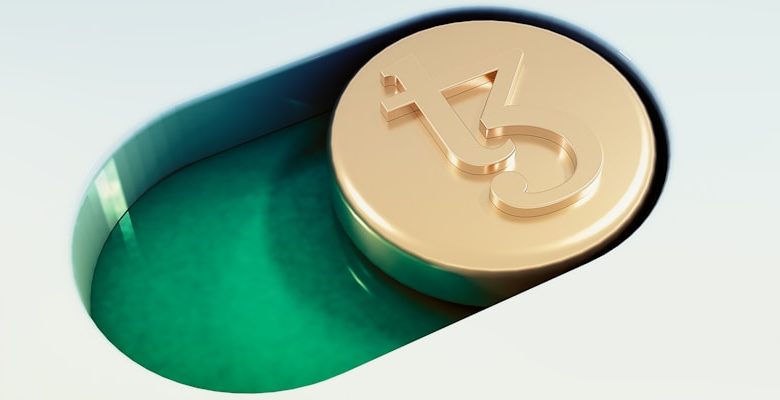How to Conduct a Security Audit of Your Crypto Assets

- Understanding the Importance of Security Audits for Crypto Assets
- Key Steps to Take Before Conducting a Security Audit of Your Crypto Assets
- Common Security Risks Faced by Crypto Asset Holders
- Tools and Techniques for Conducting a Thorough Security Audit of Your Crypto Assets
- Best Practices for Securing Your Crypto Assets After Conducting a Security Audit
- Benefits of Regularly Reviewing and Updating Your Security Audit Procedures for Crypto Assets
Understanding the Importance of Security Audits for Crypto Assets
Security audits for crypto assets are crucial in ensuring the safety and integrity of your investments. These audits involve thorough assessments of the security measures in place to protect your digital assets from potential threats and vulnerabilities.
By conducting regular security audits, you can identify any weaknesses in your security infrastructure and address them before they are exploited by malicious actors. This proactive approach can help you mitigate risks and safeguard your crypto assets against cyber attacks.
Security audits typically involve a comprehensive review of your security protocols, encryption methods, access controls, and other security measures. This process can help you identify any gaps in your security defenses and implement solutions to strengthen them.
Furthermore, security audits can help you comply with regulatory requirements and industry best practices. By demonstrating a commitment to security through regular audits, you can build trust with your investors and stakeholders, enhancing your credibility in the crypto market.
Key Steps to Take Before Conducting a Security Audit of Your Crypto Assets
Before conducting a security audit of your crypto assets, there are key steps that you should take to ensure a thorough and effective assessment. Firstly, it is essential to review all the accounts and platforms where you store your cryptocurrencies. This includes exchanges, wallets, and any other third-party services. Make sure to update your passwords and enable two-factor authentication for an extra layer of security.
Next, evaluate the security features of each platform or service you use. Check if they have encryption protocols, cold storage options, and insurance coverage in case of a security breach. Additionally, consider diversifying your assets across multiple platforms to minimize risk in case one of them gets compromised.
Furthermore, educate yourself on the latest security threats and best practices in the crypto space. Stay informed about common scams, phishing attempts, and malware attacks targeting cryptocurrency holders. By staying vigilant and proactive, you can better protect your assets from potential threats.
Lastly, consider hiring a professional security firm to conduct a comprehensive audit of your crypto holdings. They can perform penetration testing, vulnerability assessments, and code reviews to identify any weaknesses in your security measures. Investing in professional security services can provide peace of mind and safeguard your assets against cyber threats.
Common Security Risks Faced by Crypto Asset Holders
When conducting a security audit of your crypto assets, it’s crucial to be aware of the common risks that holders face. By understanding these risks, you can take proactive measures to protect your investments. Some of the most prevalent security risks include:
- Phishing attacks: Cybercriminals often use phishing tactics to trick individuals into revealing their private keys or passwords. Be cautious of unsolicited emails or messages asking for sensitive information.
- Malware: Malicious software can infect your devices and steal your crypto assets. Make sure to use reputable antivirus programs and avoid clicking on suspicious links.
- Exchange hacks: Cryptocurrency exchanges are frequent targets for hackers due to the large amounts of assets stored on their platforms. Consider using hardware wallets or cold storage solutions to keep your assets safe.
- Social engineering: Scammers may try to manipulate you into giving them access to your crypto assets through deceptive tactics. Always verify the identity of individuals before sharing any sensitive information.
- Insider threats: Even trusted individuals within your circle could pose a risk to your crypto assets. Limit access to your private keys and use multi-signature wallets for added security.
Tools and Techniques for Conducting a Thorough Security Audit of Your Crypto Assets
When it comes to securing your crypto assets, conducting a thorough security audit is essential. There are various tools and techniques available to help you in this process:
- Use a reputable cybersecurity software to scan for vulnerabilities in your system.
- Employ penetration testing to identify weak points in your security measures.
- Implement multi-factor authentication to add an extra layer of protection to your accounts.
- Regularly monitor your accounts and transactions for any suspicious activity.
- Utilize hardware wallets to store your crypto assets offline, away from potential online threats.
By utilizing these tools and techniques, you can significantly reduce the risk of security breaches and protect your crypto assets from unauthorized access.
Best Practices for Securing Your Crypto Assets After Conducting a Security Audit
After conducting a security audit of your crypto assets, it is essential to implement best practices to secure your investments. One crucial step is to regularly update your security measures to stay ahead of potential threats. Utilize strong encryption methods such as multi-factor authentication to add an extra layer of protection to your accounts. Additionally, consider storing your crypto assets in a hardware wallet rather than keeping them online where they are more vulnerable to cyber attacks.
Another important practice is to diversify your assets across multiple wallets and exchanges to reduce the risk of a single point of failure. This way, if one account is compromised, the rest of your assets will remain secure. Be cautious of phishing scams and only use reputable exchanges and wallets with a proven track record of security. Regularly monitor your accounts for any suspicious activity and report any unauthorized transactions immediately to prevent further loss.
Furthermore, consider using a secure network connection and avoid accessing your accounts on public Wi-Fi networks where your information could be intercepted by malicious actors. Keep your private keys offline and store them in a secure location to prevent unauthorized access. Finally, consider consulting with a cybersecurity expert to assess your current security measures and identify any potential vulnerabilities that need to be addressed.
By following these best practices, you can better protect your crypto assets and minimize the risk of falling victim to cyber attacks. Stay vigilant and proactive in securing your investments to safeguard your financial future.
Benefits of Regularly Reviewing and Updating Your Security Audit Procedures for Crypto Assets
Regularly reviewing and updating your security audit procedures for crypto assets is crucial in maintaining the safety and integrity of your digital investments. By staying proactive and vigilant in monitoring potential vulnerabilities, you can mitigate risks and prevent unauthorized access to your assets.
One of the key benefits of conducting regular security audits is the ability to identify and address any weaknesses in your current security measures. By thoroughly analyzing your procedures, you can pinpoint areas that may be susceptible to breaches or attacks. This proactive approach allows you to strengthen your defenses and safeguard your crypto assets from potential threats.
Additionally, updating your security audit procedures on a regular basis ensures that you are keeping pace with the rapidly evolving landscape of cybersecurity threats. Hackers are constantly developing new tactics and techniques to exploit vulnerabilities, so it is essential to adapt your security measures accordingly. By staying up to date with the latest best practices and technologies, you can effectively protect your assets from emerging risks.
Furthermore, conducting regular security audits demonstrates a commitment to transparency and accountability in managing your crypto assets. By regularly reviewing and updating your procedures, you are not only protecting your investments but also building trust with your stakeholders. This level of diligence and responsibility can enhance your reputation in the crypto community and attract investors who value security and reliability.
In conclusion, regularly reviewing and updating your security audit procedures for crypto assets is a critical component of maintaining the safety and integrity of your digital investments. By staying proactive, adaptive, and transparent in your approach to security, you can effectively protect your assets and build trust with your stakeholders.



